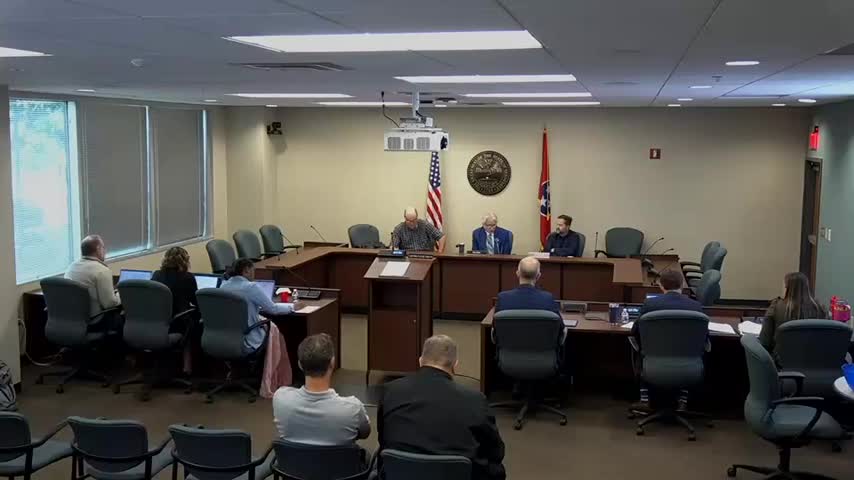Tennessee Surveying Regulations Face Debate Over Licensing and Certification Standards
August 28, 2025 | Commerce & Insurance, Deparments in Office of the Governor, Organizations, Executive, Tennessee
This article was created by AI summarizing key points discussed. AI makes mistakes, so for full details and context, please refer to the video of the full meeting. Please report any errors so we can fix them. Report an error »

During the recent Land Surveyor Board Meeting held on August 28, 2025, in Tennessee, significant discussions emerged regarding the practice of surveying and the implications of new technologies on traditional surveying methods. The board members expressed concerns about unlicensed individuals conducting surveys and the potential risks this poses to public safety and professional standards.
A key point of contention was the definition of "responsible charge" in surveying practices. Board members highlighted that Tennessee law does not currently allow for a consultant relationship in surveying, meaning that individuals must either be licensed surveyors or not involved in the practice at all. This has raised questions about the legitimacy of services being offered by those without proper licensure, particularly in the context of topographic surveys, which are considered a fundamental aspect of surveying.
The discussion also touched on the role of technology, such as drones and photogrammetry, in modern surveying. While these advancements allow for more efficient data collection, board members emphasized that the underlying principles of surveying must still be adhered to, including the requirement for licensed professionals to oversee and certify the work. The board noted that while photogrammetrists in Tennessee are required to work under the supervision of licensed surveyors, there are concerns about individuals using technology to perform surveying tasks without the necessary qualifications.
As the meeting progressed, members acknowledged the need for a clearer framework to address these evolving practices. They recognized that the landscape of surveying is changing, and with it, the need for updated regulations that protect the public while accommodating technological advancements. The board decided to defer further discussions on this topic to the next meeting, allowing time for careful consideration of the implications of their decisions.
This meeting underscores the ongoing challenges faced by the surveying profession in Tennessee as it navigates the intersection of traditional practices and modern technology. The outcomes of these discussions will be crucial in shaping the future of surveying in the state, ensuring that public safety and professional integrity remain at the forefront.
A key point of contention was the definition of "responsible charge" in surveying practices. Board members highlighted that Tennessee law does not currently allow for a consultant relationship in surveying, meaning that individuals must either be licensed surveyors or not involved in the practice at all. This has raised questions about the legitimacy of services being offered by those without proper licensure, particularly in the context of topographic surveys, which are considered a fundamental aspect of surveying.
The discussion also touched on the role of technology, such as drones and photogrammetry, in modern surveying. While these advancements allow for more efficient data collection, board members emphasized that the underlying principles of surveying must still be adhered to, including the requirement for licensed professionals to oversee and certify the work. The board noted that while photogrammetrists in Tennessee are required to work under the supervision of licensed surveyors, there are concerns about individuals using technology to perform surveying tasks without the necessary qualifications.
As the meeting progressed, members acknowledged the need for a clearer framework to address these evolving practices. They recognized that the landscape of surveying is changing, and with it, the need for updated regulations that protect the public while accommodating technological advancements. The board decided to defer further discussions on this topic to the next meeting, allowing time for careful consideration of the implications of their decisions.
This meeting underscores the ongoing challenges faced by the surveying profession in Tennessee as it navigates the intersection of traditional practices and modern technology. The outcomes of these discussions will be crucial in shaping the future of surveying in the state, ensuring that public safety and professional integrity remain at the forefront.
View full meeting
This article is based on a recent meeting—watch the full video and explore the complete transcript for deeper insights into the discussion.
View full meeting
